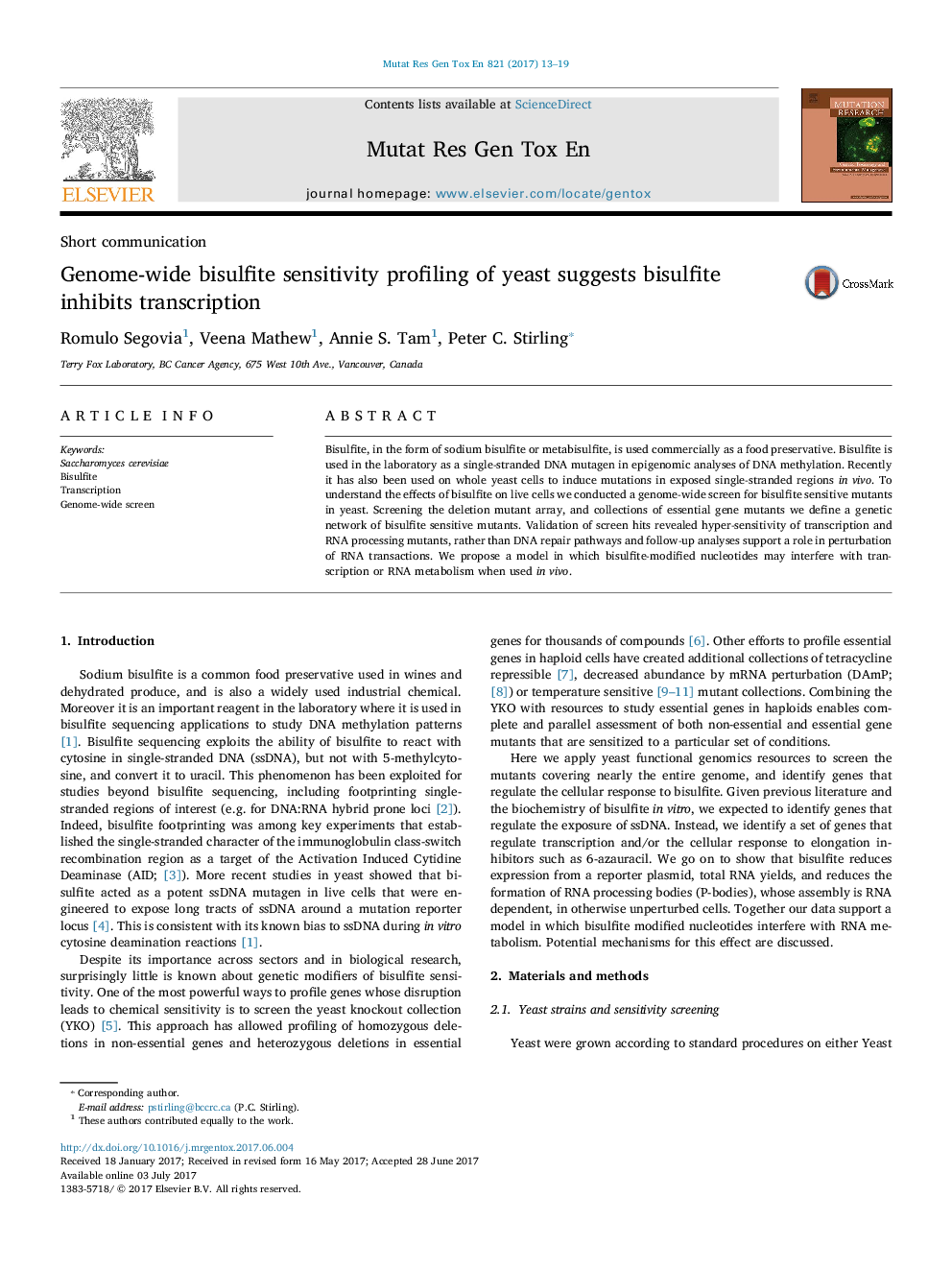| Article ID | Journal | Published Year | Pages | File Type |
|---|---|---|---|---|
| 5528799 | Mutation Research/Genetic Toxicology and Environmental Mutagenesis | 2017 | 7 Pages |
â¢A genome-wide screen for bisulfite sensitivity implicates RNA metabolism defects.â¢Bisulfite impairs RNA dependant P-body formation.â¢Bisulfite reduced RNA yields and blocked reporter gene expression in treated yeast.
Bisulfite, in the form of sodium bisulfite or metabisulfite, is used commercially as a food preservative. Bisulfite is used in the laboratory as a single-stranded DNA mutagen in epigenomic analyses of DNA methylation. Recently it has also been used on whole yeast cells to induce mutations in exposed single-stranded regions in vivo. To understand the effects of bisulfite on live cells we conducted a genome-wide screen for bisulfite sensitive mutants in yeast. Screening the deletion mutant array, and collections of essential gene mutants we define a genetic network of bisulfite sensitive mutants. Validation of screen hits revealed hyper-sensitivity of transcription and RNA processing mutants, rather than DNA repair pathways and follow-up analyses support a role in perturbation of RNA transactions. We propose a model in which bisulfite-modified nucleotides may interfere with transcription or RNA metabolism when used in vivo.
